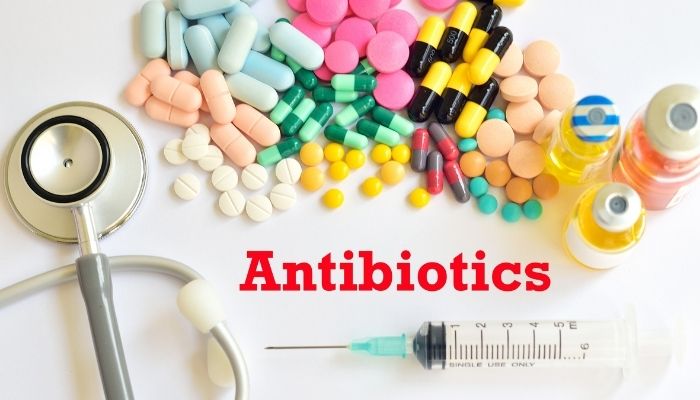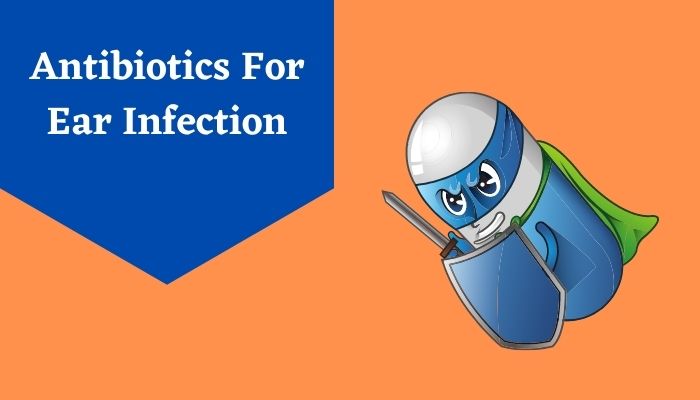Ear infections are fairly common, especially in children. They are quite painful and often require medical intervention. Your doctor, upon analysis, may refer to some antibiotic ear drops or oral medicines to relieve the pain and discomfort. These medicines also help to clear out the infection and so are highly effective.
Understanding An Ear Infection
An ear infection is most commonly caused by a fluid buildup in the middle or inner ear. When the body cannot drain out the fluids in the ear, they accumulate, get infected, and cause severe ear pain. The ear infection also brings forth:- Fever
- Sore throat
- Stuffy nose
- Extreme ear pain and swelling
What Causes An Ear Infection?
Though common, ear infections are quite serious and can need urgent medical attention. An ear infection is caused due to the following reasons:Water Retention
Also known as ‘swimmer’s ear’, this is a condition when an ear infection is caused due to fluid retention in the ear. The water gets in after you swim, dive, or even shower. It doesn't get drained out and causes a moist channel in your middle ear. The bacteria present in the ear wax and other parts of the ear use this moist environment as a breeding ground and rapidly multiply, causing a full-blown bacterial ear infection.Common Cold
Ear infection post a common cold is also a common occurrence. It mainly happens because of a virus build-up in the ear during the duration of the common cold. Similarly, you can get an ear infection during or immediately after the flu as well, primarily due to the same reason of the virus buildup.Build-up Of Bacteria
Bacterial buildups very commonly lead to severe ear infections. The common bacteria responsible for this are streptococcus pneumonia, Haemophilus influenza, and Moraxella catarrhalis.If bacterial, the antibiotics for ear infections in adults and kids prove to be an effective and safe remedy, though under strict medical supervision only.
Getting A Proper Diagnosis
You need to get a proper diagnosis before starting any antibiotics for ear infections in adults or kids. Antibiotics are strong medicines that need to be taken only after you consult a doctor. Call and fix an appointment with your doctor and then ask him or her if you can be put on antibiotics for ear infections to get relief from the pain.It is also very important to note that ear infections that are caused by a virus will not require an antibiotic. This is why an expert needs to look at your ear to understand the cause of the ailment. Your doctor will prescribe the antibiotic only when he or she is sure that you have a bacterial infection. Have the medicines prescribed by your doctor, as if you randomly pop an antibiotic for a viral infection, you will unnecessarily face additional health problems.
Common Antibiotics For Ear Infection

The most commonly used antibiotics for ear infections include:
- Amoxicillin
- Neomycin/polymyxin b/hydrocortisone
- Colistin/neomycin/thonzonium
- Hydrocortisone
- Ciprofloxacin/dexamethasone
- Ciprofloxacin/hydrocortisone
- Ciprofloxacin
- Ofloxacin
How Do The Antibiotics For Ear Infections Help?
When the ear infection is caused by bacteria, the best antibiotic for ear infections is prescribed. But how exactly do these antibiotics for ear infections in adults or kids work?Well, the role of an antibiotic is to weaken and kill the bacteria. The antibiotic reduces the bacteria's potency and prevents it from multiplying. Additionally, it also gives a boost to the body’s immune system, making it powerful to fight off the (already weakened) bacteria that cause the ear infection.
As a patient, you begin to get relief within 24 hours of the first dose of the antibiotic, as the bacteria begin to weaken. As the medicines work and the bacteria are eliminated, you get full and proper relief from the ear infection.
Importance Of Completing The Dosage
As stated, you will start getting relief very quickly after you begin the antibiotics for ear infections. But this should not be the reason why you stop having your medicines.It is extremely crucial to complete the entire course of medicine. Whether you have been prescribed a pill or one of the antibiotic ear drops, you have to continue with the medication for as long as your doctor has prescribed it.
When you stop the antibiotics halfway, your body develops a certain immunity towards it. This leads to the medicine becoming redundant for all future uses.
Also, the bacteria in the body stay alive and come back in a more powerful form, making you even sicker than before. This is why you should diligently follow your doctor’s advice and have the medicine for as long as he asks you to.
Prevention Is Better Than Cure
While you need the best antibiotic for ear infections if you get the disease, you should always try to stay safe and prevent it in the first place. A lot of ear infections happen due to improper hygiene. Remember to clean your ears regularly.Do so for your kids too as ear infections are more common in the younger population. Then, refrain from poking your ear with any object, including the soft earbuds. If you feel discomfort, visit your doctor, rather than probing it at home yourself.
The ear is a very delicate organ and you need to handle it with care. Keep your ears clean, dry, and wax-free and you will see a fall in the frequency of ear infections. But if the infection does occur, visit your doctor and follow his advice. Take the antibiotics for ear infections and recover in a wholesome and safe manner.
